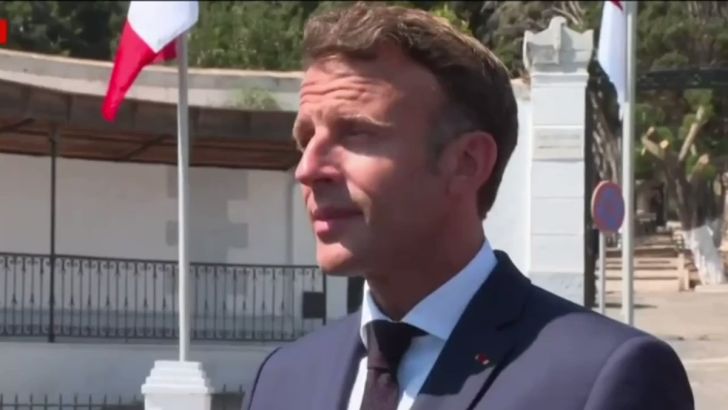Should you be wearing a dead salmon on your head?
And other interesting things I found on the net this week
I love it when people just do their jobs …

America’s Fire Sale: Get Some Free Speech While You Can
A powerful piece marred only by one thing that irritated me — which is to quote some random tweet. Random tweets being unhinged proves nothing more than what we know — around any issue that blows up on Twitter, there will be a random tweet that is unhinged.
Two years ago, a friend emailed me: Some writers were composing an open letter to appear in Harper’s; it would address the growing threats to freedom of expression in this country. Did I want to read and possibly sign it? I read it and said to myself, This is going to be a shitstorm of biblical proportions, and wrote to my friend, “In.”
Of course I was in. I have shown up for free expression when it was a major cause of the left, and I show up for it now that it has become a cause of the right. Freedom doesn’t belong to a political party, and it’s not the tool of the powerful; it’s the tool of the powerless.
One writer who signed the Harper’s letter was not just a member of PEN America; she was—and is—one of its trustees: Jennifer Finney Boylan. But on publication day, she freaked out. With trembling hands, she typed her own ransom note:
I did not know who else had signed that letter. I thought I was endorsing a well-meaning, if vague, message against internet shaming. I did know Chomsky, Steinem, and Atwood were in, and I thought, good company. The consequences are mine to bear. I am so sorry.
Frederick Douglass said, “I would unite with anybody to do right and with nobody to do wrong.” Boylan’s version: I’ll tell you what I believe if you tell me who else believes it.
Malcolm Gladwell pointed out the absurdity of her position by tweeting, “I signed the Harpers letter because there were lots of people who also signed the Harpers letter whose views I disagreed with. I thought that was the point of the Harpers letter.”


The ethics folks being unethical again
As I used to say when I was chairing The Australian Centre for Social Innovation (TACSI), I needed a trigger warning whenever anyone talked about ethics approval. We wanted to evaluate the effect of our programs on kids. But it was too hard to get ethics approval to do so (this was to ask them the same kinds of questions about if and how they felt the program was helping them as the program being evaluated asked them every few weeks). So we didn’t evaluate its impact on kids — just adults. How ethical can you get? There are oodles of other examples of this kind of outrage. Anyway, who am I to argue with people who earn their living every day on ethics committees grappling with such imponderables?
In any event, we don’t know whether giving premmie babies a 21% oxygen or a 30% oxygen mix is better for them. But that’s OK. Finding out is unethical, say ‘ethics experts’ so not finding out must be ethical.
There is no standard level of oxygen support for babies born four to eight weeks early in Victoria, nor is there enough evidence to prove 21 per cent is better than 30. Different hospitals use concentrations between 21 and 30 per cent.
Therefore, the researchers say their trial does not pose any extra risk to the babies. Furthermore, seeking consent from 100,000 parents-to-be would be almost impossible, they say.
The trial was approved by the Royal Children’s Hospital in Melbourne; the researchers hope to run it at about 20 sites across the state. The researchers also received a sign-off from a consumer panel of parents and preterm survivors.
But The Age understands research ethics staff from at least one hospital hold major concerns, which are shared by some independent ethics experts.
Why I Left Academia (Since You're Wondering)
What disgusted me most was not the intellectual corruption. It was the careerism. It was the sense that all of this—all the posturing, all the position-taking—was nothing more than a professional game. The goal was advancement, not truth. The worst mistake was to think for yourself. … One of the department stars, who agreed to read a couple of chapters of my dissertation on the condition that he didn’t actually have to sit on my committee (i.e., make a real effort), asked me if I had been living in a cave for 20 years. Even my graduate advisor, generally sympathetic and encouraging, said that I sounded like I was writing for the New Yorker.
The strategy worked for a while. But there were problems. For one thing, I was still having trouble bringing myself to professionalize. The drudgery of it all! Slogging through a desert of secondary sources (as bad as it is to have to write academic prose, having to read it is brain death). Enduring the endless odyssey of scholarly publication: submitting, submitting, submitting (rejection, rejection, rejection), submitting once more, revising, revising, revising (six months, 12 months, 18 months), all for a single precious line on your CV and a readership of approximately zero …
No, I didn’t play by the rules, so I can’t expect to have won. Unless the problem is the rules. Because it wasn’t so much that I wanted to be treated differently than everybody as that I wanted everybody to be treated differently. I wanted the rules to change; I played by the ones that I thought we should have. I insisted on behaving as if I existed in an environment that valued teaching as much as scholarship and intellectualism as much as specialization. Where opening the eyes of a hundred undergraduates was worth as much as supervising one more dissertation, and publishing an essay in a periodical that’s read by tens of thousands was as valuable as adding one more item to the pile of disregarded studies.
This isn’t just my story … It’s a story of misplaced institutional priorities. And beyond that, it’s a story of a profession that is eating its young. … Institutions were shifting their teaching to adjuncts on a monumental scale. They were destroying with one hand the professoriate they were creating with the other. And, of course, it’s only gotten worse since then: worse and worse and worse. … Ultimately, the reason I left academia (since you’re wondering) is the same that many others have. My story is a personal disappointment; the larger story is a tragedy.


A Papal Revolt Created Europe’s First Bureaucracy
Palladium Magazine tells us that it is “a San Francisco-based, non-partisan publication that explores the future of governance and society through international journalism, long-form analysis, and social philosophy”. It’s new. There may not be any publication that is groovier. Its contents are uneven, but usually on interesting subjects. This piece is uneven but on an interesting subject — something I’m particularly interested in — the way in which in the eleventh and twelfth centuries the Western Church developed the template for the organisations that came to run Western Governments, corporations and (Ivan Illich argued in something that’s not mentioned here) professions. That is, monarchies that codified and projected their power in words — just as John’s Gospel warns us that ‘the Word’ is only the beginning.
The legal scholar Harold Berman described the situation
Unlike Caesar, Charlemagne and his successors did not rule their subjects through an imperial bureaucracy. There was no capital city comparable to Rome or Constantinople indeed, in sharp contrast to Caesar’s city-studded empire, Charlemagne and his successors had hardly any cities at all. Instead, the emperor and his household traveled through his vast realm from one principal locality to another. He was constantly on the move, traveling in France, Burgundy, Italy, Hungary, as well as in his Frankish German homeland. ….
After Gregory VII, however, the church took on most of the distinctive characteristics of the modern state. It claimed to be an independent, hierarchical, public authority. Its head, the pope, had the right to legislate, and in fact Pope Gregory’s successors issued a steady stream of new laws, sometimes by their own authority, sometimes with the aid of church councils summoned by them. The church also executed its laws through an administrative hierarchy, through which the pope ruled as a modern sovereign rules through his or her representatives. Further, the church interpreted its laws, and applied them, through a judicial hierarchy culminating in the papal curia in Rome. Thus the church exercised the legislative, administrative, and judicial powers of a modern state.
















